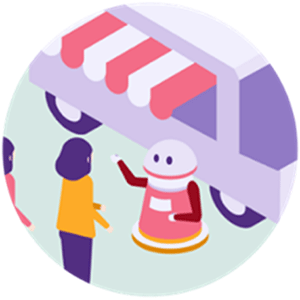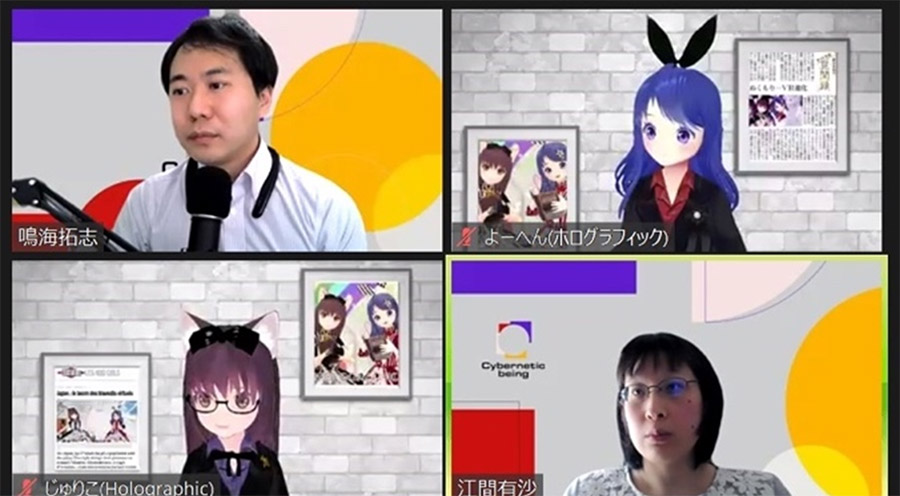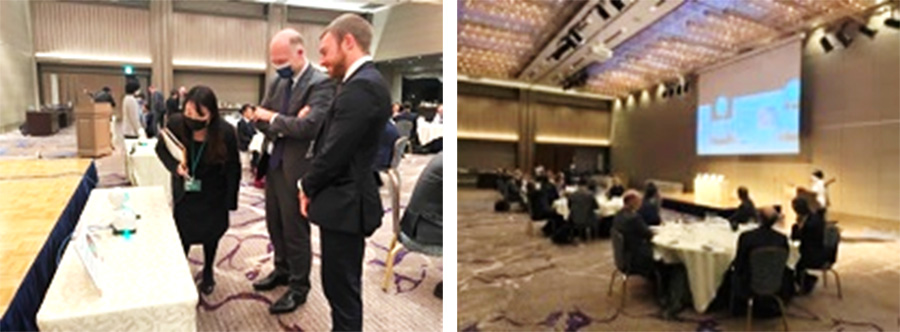Progress Report
Cybernetic Avatar Technology and Social System Design for Harmonious Co-experience and Collective Ability6. Designing the ethics and institutions for a CA society (Social System Research Group)
Progress until FY2022
1. Outline of the project

What kind of social rules
and ethical norms do we
need in a future where
people's bodies are
augmented with CA?
We will explore the design of ethics and social institutions in the age of CA by examining social issues such as the rights and responsibilities that should be protected in a society where people use cybernetic avatars (CA) on a daily basis. We will also analyze the distribution and management of experience and skills data from various perspectives, including law, social science, and social theory of science and technology. By supporting a society in which everyone can freely use CA in a safe and ethical environment, we will contribute to the realization of the "cybernetic avatar lifestyle" that are included in Goal 1.

Legal interpretation and policy research of CA
Ryota AKASAKA (Osaka University ELSI Center)

Ethics and social system design in the age of CA
Arisa EMA (The University of Tokyo)

Exploration of Cybernetic Avatar society using design fiction.
Hirotaka OSAWA (Keio University)
2. Outcome so far
- (1) Holding the Cybernetic Avatar Society (CAS) study group, a study group to examine issues and solutions in a society where CAs are active
- (2) Domestic Fieldwork and Promoting cooperation and discussion with international administration on CA
In order to realize a society in which people use CA in various aspects of their daily lives, and work, learn, and enjoy in new ways on a daily basis, it is necessary to envision specific use cases of CA in the near future, identify what kind of ELSI exist, and design new ethical and social systems to deal with these issues. Therefore in (1), we organized Cybernetic Avatar Society (CAS) study group with lawyers and social scientists and CA users, to understand existing challenges and devise appropriate strategies to address them. As a result, we identified issues related to the legal protection of CA workers, governing law for contracts, and governance that should be addressed by CA platform operators. We have developed guidelines to deal with these issues.
In (2), with the social co-creation group, we are conducting experiments and fieldwork surveys on OriHime use in schools and workplaces. We have started discussions with government officials and practitioners in various countries, sharing insight not only about the technology but also examples of CAs that provide new "options" for employment and the importance of developing frameworks and laws that support flexible work styles through international administrative forums such as the Global Partnership on AI (GPAI) summit.


- · 1st CAS Study Group
- (June 24, 2021)
- “The State of the Cybernetic Avatar Society and the ELSI”
- · The 2nd CAS Study Group
- (July 30, 2021)
- “CA and ELSI from the Viewpoint of Use Cases”
- · The 3rd CAS Study Group
- (September 3, 2021)
- “Experience/skill Sharing and Intellectual Property”
- · The 4th CAS Study Group
- (December 3, 2021)
- “Possibilities and Challenges of VR Avatar for Cognitive Extension of Embodiment and Sociality”
- · Additional The CAS Study Group
- (November 8, 2021)
- “Issues Concerning the Symbiosis, Co-creation and Co-evolution of Humans and Avatars/robots”
- · The 5th CAS Study Group
- (February 16, 2022)
- “Multiple 'Bodies' and Legal Liability”
- · Additional CAS Study Group
- (March 3, 2022)
- “Can VR Promote Awareness of Unconscious Bias? : A Workshop Project on the Work Environment Surrounding Child Care”
- · The 6th CAS Study Group
- (June 14, 2022)
- “Working Methods and Guidelines Using CA as Seen in the Media”
- · The 7th CAS Study Group
- (January 25, 2023)
- “Governance of CA Platforms”
3. Future plans
Based on the knowledge gained from the demonstration experiments to date, we will formulate and publish guidelines from an ELSI perspective for both CA users and employers who hire CA users to determine what kind of environment and systems need to be created under the current legal and social systems, what kind of concerns can be anticipated and how they should be addressed.
In addition to predict changes in lifestyles and work styles in a future CA society and reflect them in research and development, we will utilize "SF prototyping," as one of the methods to envision the future with science fiction storytelling and backcasting. This approach has the goal to design CA society scenarios that will be widely accepted by the general public in collaboration with science fiction authors and the research team.